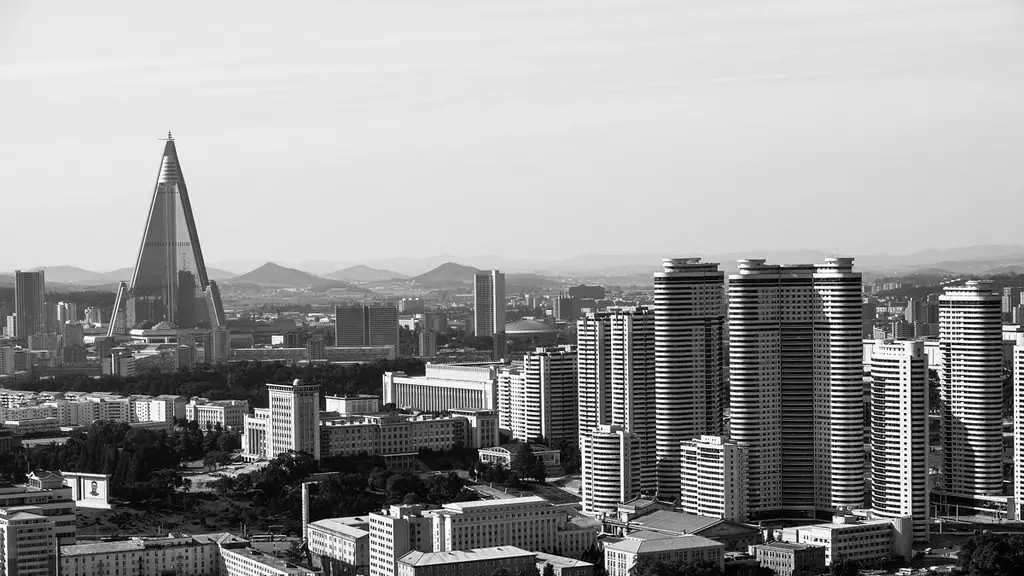Background
North Korea is one of the most mysterious countries in the world. Officially titled the Democratic People’s Republic of Korea, this small Northeast Asian nation is widely known for its questionable political system, its intense nuclear ambitions, and its complete absence of any kind of reliable modern electricity grid. As far back as the late 1950s, the country became renowned for its lack of available energy sources with the majority of its population having no access to electricity.
Ever since the 1950s, North Korea underwent various changes with regards to its energy sources. The most substantial being the massive shortages in oil, electricity, and natural gas caused by the collapse of the Soviet Bloc at the beginning of the 1990s. This brought further instability to the country, causing an estimated 4-5 million people to die due to starvation and malnutrition. To address these shortages, the North Korean government began shifting to renewable energy sources, financing and constructing hydroelectric dams, investments in solar and wind power, and small-scale micro hydro and biomass plants.
Reasons for the Darkness
One of the most dominant explanations as to why North Korea is still dark is directly related to its outdated and dysfunctional infrastructure. North Korea spends less on energy than any other major economy in the world, with only a fraction of their energy expenditure going towards energy production and distribution. This is due to their limited ability to distribute energy to its citizens, as the majority of electricity is produced in regional power plants and is then sent directly to regional government offices, contributing to the huge power shortages in the country.
The lack of access to modern energy sources, coupled with the government’s embargo on foreign investment and the country’s economic sanctions, also impact the availability of energy in North Korea. As energy production is expensive and infrastructure updates are often required to increase energy sources, North Korea’s inability to open their economy to foreign capital is a major obstacle to their energy development.
In addition, the country’s centralized planned economy, high corruption levels, and the prevalence of black markets are also factors that contribute to why North Korea is still dark in comparison to its neighboring countries. The country’s isolated political and economic position has meant that almost all of its energy is produced by their own government and is subject to heavily rationed distribution.
Impact on the People
The problem of North Korea’s darkness has far reaching effects. With the majority of the population having little to no access to electricity, life in North Korea continues to be characterized by long periods of substandard living conditions and unreliable energy sources. This means that many of the country’s citizens are forced to spend prolonged periods of time without access to basic amenities such as light, heat, and water.
Moreover, the failure to bring reliable power supplies to the entire region has also resulted in the presence of extreme poverty amongst the many North Korean people who live in rural and remote parts of the country. With a lack of consistent energy, economic development and job opportunities are scarce, and with little access to resources and electricity, these people are unable to improve their economic conditions.
Furthermore, the absence of reliable energy sources inadequately serves the medical needs of the population as well. Without access to power, transportation and communication issues arise, further leading to quicker disease spread, inadequate healthcare staff, and lack of educational opportunities.
International Efforts
Various international organizations, including the United Nations, the International Atomic Energy Agency, and the European Union, have been working together to try and spread the concept of sustainable energy in North Korea. They have also been advocating for the country to gain foreign investment so that their power grids can be modernized and better managed.
In addition, a number of aid agencies and nonprofits have been working towards providing North Koreans with access to clean and reliable energy sources, such as solar panels and other renewable energy sources. By providing North Koreans with clean and sustainable energy, the organizations hope to improve their living conditions and access to basic services, such as education and health care.
Future Outlook
In the coming years, various organizations aim to encourage North Korea to become more open to foreign investment, in order to promote more trade and economic development. By providing access to international technology and modern energy sources, the rate of progress towards reliable energy production and distribution in North Korea could be accelerated.
Furthermore, there is an urgent need to develop and improve the current energy infrastructure in North Korea, so that energy production can be increased, and the energy that is produced can be more equitably distributed to the populace. There is also an emphasis on providing North Koreans with access to renewable energy sources, so that the long-term effects of global warming can be reduced.
Conclusion of Oil Dependency
As of 2021, North Korea is still one of the most energy-deprived countries in the world. With the majority of the population having no access to reliable modern electricity, the effects of this energy crisis are far-reaching and have caused numerous issues that hinder North Korea’s economic growth and overall living conditions. To ameliorate this issue, the government must experience a shift in mindset in order to promote foreign investment and appeal to renewable energy sources. This would lead to a more stable and reliable energy infrastructure, enabling the population to eventually rise out of darkness.



